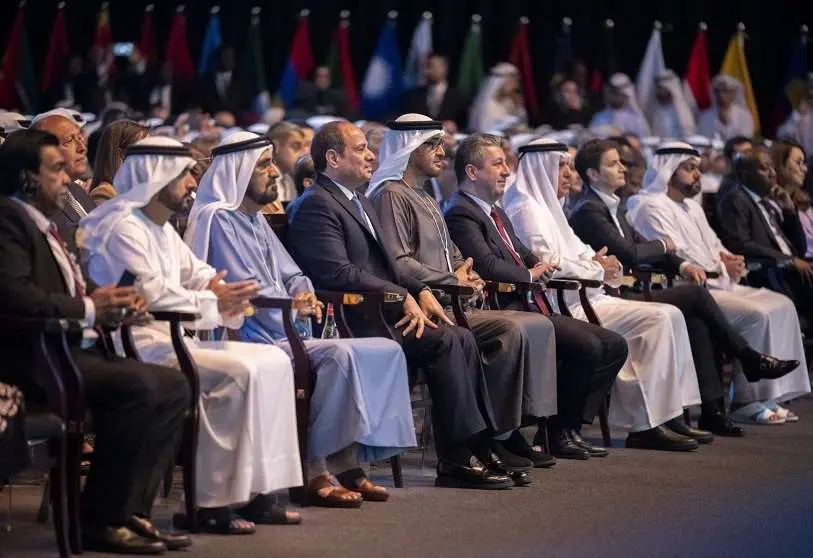Emirates flexes its economic muscle at the World Summit of Governments

Dubai is hosting this week the World Government Summit (WGS), an international forum attended by some 20 heads of state, more than 250 ministers, some 10,000 civil servants and 80 organisations to discuss global issues. It is a decisive event for taking the pulse of the state of the world's economies, the technological phenomena on the rise and the joint response to the climate crisis. It is also an opportunity to take stock of the current state of relations between the participating countries.
The President of the United Arab Emirates, Mohammed bin Zayed, the host of the summit, met with the Prime Ministers of Kuwait, Yemen and Iraqi Kurdistan, Ahmad Nawaf Al-Ahmad Al-Sabah, Maeen Abdulmalik Saeed and Masrour Barzani, to strengthen bilateral ties and cooperation. In the coming days, he will hold more meetings with other regional leaders on the sidelines of the event, which held its second day on Tuesday.
MBZ also spoke with the managing director of the International Monetary Fund (IMF), Kristalina Georgieva. The Bulgarian economist said on Monday that the Gulf economies were working thanks to a series of reforms that she described as "relentless". "There is an impression that the only reason the Gulf countries are doing well is because of high oil and gas prices; this is not true," Georgieva said, echoing the latest report published by the Mohammed bin Rashid Al Maktoum School of Government, the Emirati vice-president and ruler of Dubai.
The global Economic Diversification Index report argues that the Gulf petro-monarchies have seen a "significant improvement" in their economic diversification plans, which were put in place in the wake of the COVID-19 crisis that burst the hydrocarbon bubble. The study places the UAE and Saudi Arabia at the forefront of economic transformation policies that seek to minimise energy dependence.

Recep Tayyip Erdoğan addressed the second day of the World Government Summit, one week after the earthquakes. The Turkish president sent a video message in which he thanked the United Arab Emirates and other countries in the region for their help in the form of rescue teams and humanitarian supplies, but raised the death toll from the massacre to 31,600. Rescue teams have pulled more than 8,000 people from the rubble, the Islamist leader added.
The director-general of the World Health Organisation (WHO) told attendees in another video message recorded from Syria, where he is in Syria to assist in the rescue effort, that the organisation's humanitarian logistics hub in Dubai has been "essential" in responding to the aftermath of the earthquake in Turkey and Syria. Ethiopia's Tedros Adhanom Ghebreyesus said WHO had delivered supplies to more than 90 countries from the summit city over the past year.
Egyptian President Abdel Fattah El Sisi also spoke on Tuesday to thank both Abu Dhabi and Riyadh for their support in a speech entitled "Investing in Egypt: Empowering the private sector and the role of the Egyptian Sovereign Wealth Fund". El Sisi is desperately seeking to attract investment in the country to revive Egypt's ailing economy, which is still struggling to get back on its feet. In his speech, the former military leader said that the Arab Spring could not be repeated, because the country of the pharaohs "paid a high price".








